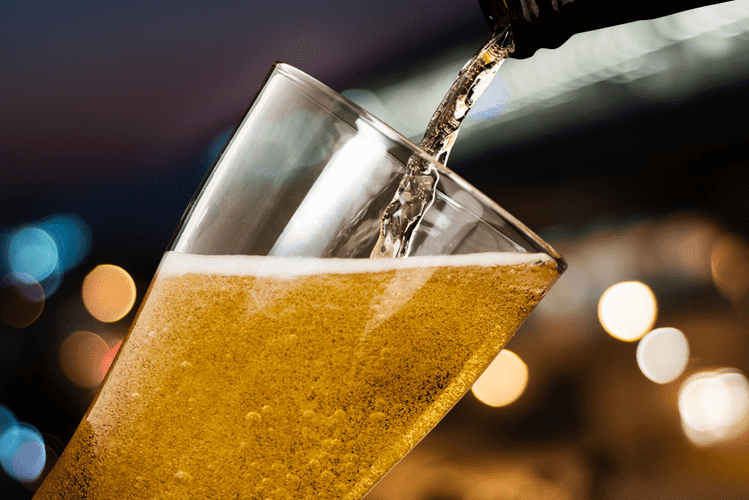Although I think they can all be considered addiction memoirs, and share a familial resemblance with other examples of that form, none of them feel remotely imprisoned by its conventions. And yet—even though each of these books goes its own way, never hesitating to flout a trope or trample a norm to serve its story—they don’t go in terror of the conventions either. Where the story they have to tell echoes others, they let us hear that echo. One characteristic I think I discern in the best addiction memoir is a certain humility that doesn’t strive after innovation for its own sake. Serious addiction has a way of annihilating your sense of exceptionalism, stripping away your autonomy and character, and reducing you to the sum of your cravings.
How To Choose A Good Restaurant Every Time You Go Out

Early recovery has the quality of vigorous exercise, as though each repetition of a painful moment… serves to build up emotional muscle. Dependency is startlingly unlike any other memoir about addiction—that I know of, at least. I’ll mention some more in relation to the books I’ve chosen, but these are, I think, the four most fundamental ones.
Alcoholics Anonymous
My Catholic inner child considers this attraction to femme addiction narratives perverse. As a writer dealing with shameful topics, there is the risk of character annihilation, alienation from those we want to love and be loved by. Functioning and fun-loving, this author’s love for wine hardly seems like a problem until her attempt to cut back proves much more challenging than she had imagined. She begins to share her attempts to sober up anonymously online and ends up finding support, community, and the strength to battle her addiction in the most unlikely of places. Joseph Naus beats the odds by overcoming a difficult childhood and becoming a successful civil trial lawyer. Still, his insatiable desire for alcohol and sex upends his entire life on one fateful night.

Best Quit Lit Books and Sobriety Memoirs to Inspire Your Recovery
- Behind the infamous hairdo and metal bikini, Star Wars actress Carrie Fisher was leveling out the mood swings of bipolar disorder with a cocktail of cocaine, prescription medication, LSD, and alcohol.
- Burroughs talks about being hooked on “Bewitched” as a child, a show that exhibited an alcoholic husband among other things.
- Addiction, with its cyclical copping, its single-minded want, is a monotonous thing.
I love her perspective on drinking as an act of counter-feminism—that in reality it actually dismantles our power, our pride, and our dignity as women, though we intended the opposite. Also, Lovato is known for her openness about her battles with substance abuse and eating disorders. Through her experiences, she offers encouragement and practical wisdom to help others stay resilient through life’s challenges.
- Although his childhood experience was remarkably different from the norm, it still illustrates the vulnerability that emotional abuse creates in relation to the formation of addiction.
- Dr. Brown gives us tools to shape and share our thoughts in the most honest way possible, which can be a crucial step towards healing.
- I am not sure I’d be sober today if it weren’t for Tired of Thinking About Drinking.
- These movies and books let me know I was not alone, that there were other people walking around who drank like I did.
Lit: A Memoir
Healing Neen provides a personal look into the connection between incarceration, substance use, and trauma. Best-selling memoirist Mary Karr longs for the family and stability that eluded her in childhood. When she marries and becomes a mother, she finds that with so much to https://www.rendezvouscreatif.fr/2021/02/15/how-to-create-a-successful-relapse-prevention-plan/ lose, she still cannot control her drive to drink.
Helen ultimately escapes her marriage and pretends to be a widow, earning a living as an artist to care for herself and her young son. The book was so upsetting to her sister Charlotte that, after Anne’s death she passed on the chance to have it reprinted, and the book was neglected for a really long time. Today it is widely considered to be a landmark in early feminist literature, but its frank depictions of addiction Halfway house within marriage are just as deserving of acclaim. I had to read this book in small doses because it was so intense. Through reading this book I came to better understand myself, my body’s physical reactions, and my mental health.
There’s a climactic epiphany snatched from a debauched bottom, best memoirs about alcoholism then an earnest striving toward sobriety. For the most part, the story arc is tidy, allowing readers the rubbernecky thrills of second-hand vice with a dose of hard-won redemption as a chaser. It’s like scarfing a bacon cheeseburger and washing it down with a shot of wheatgrass. I compiled a short list of powerful addiction memoirs to add to your reading list. Even if you aren’t in recovery, the struggles and emotions of these authors can help you feel less alone in this world.

Powerful Memoirs About Mental Illness & Addiction
Perry’s memoir not only provides insight into the toll of addiction but also emphasizes the importance of hope, support, and self-awareness in the journey toward recovery. In this curated list, you’ll find a mix of compelling memoirs from people who’ve lived through addiction and recovery, and evidence-based works that break down the neuroscience, psychology, and social factors behind it. From the raw honesty of personal downfall to the clarity of clinical research, these 14 books illuminate addiction from every angle.
- She offers generous vulnerability in her lessons and encourages you to find your gift within.
- Whether you are the parent, spouse or relative of an addict, this is the perfect first book for you to read.
- She was intimately acquainted with displacement and battled an inner duality since childhood.
I thought my party-girl ways were so glamourous, but it was really sad and unfulfilling, despite the glitz and glamour. I did many things I am deeply ashamed of, and reading her book taught me that I am not alone. I very much related to her always feeling “less than” in normal life, and only becoming confident and alive once she poured alcohol down her throat. Dove “Birdie” Randolph is doing her best to be a perfect daughter. She’s focusing on her schoolwork and is on track to finish high school at the top of her class. But then she falls for Booker, and her aunt Charlene—who has been in and out of treatment for alcoholism for decades—moves into the apartment above her family’s hair salon.
Take the first step towards transforming your life, transcendence begins here. This compelling memoir — which in 2018 was turned into a film starring Steve Carell and Timothée Chalamet — follows a man who found himself asking these same questions when his son became addicted to meth. Though not a list of tips or scientific analysis, Blake E. Cohen’s book reminds you that you are not alone in this difficult situation. Addiction is a disease and Maia Szalavitz acknowledges that fact. Only by understanding the reality of this disease, can you start to comprehend what your loved one is going through. She highlights the importance of self-care and advises you on how to support your loved one.
Books diverging from the genre’s hallmarks are already easy to find. Sarah Hepola’s Blackout, while adhering to many narrative beats, also includes lengthy reporting about the science of blackouts. She also writes at length about social and emotional repercussions of losing memory. When women are in a blackout, things are done to them,” one expert tells her. The late New York Times media critic David Carr wrote another notable “addiction memoir that’s not a normal addiction memoir” with 2008’s Night of the Gun, in which he investigated his own descent into cocaine addiction.
Get ready to be moved and inspired by these powerful narratives that shed light on the complexities of alcoholism. Although she makes faltering progress in building a simulacrum of grown-up life, her relationship with alcohol—“I had an appetite for drink, a taste for it, a talent”—steadily overtakes everything. By the end of her drinking she is reduced to crouching on a stairwell outside her apartment, glugging whisky with her one-year-old son and failing marriage inside. But even more than how it captures the bleakness of alcoholism, what I most value in this book is how she narrates her recovery with such brutal honesty. She keeps showing up to 12-step meetings, even when they do nothing for her.


